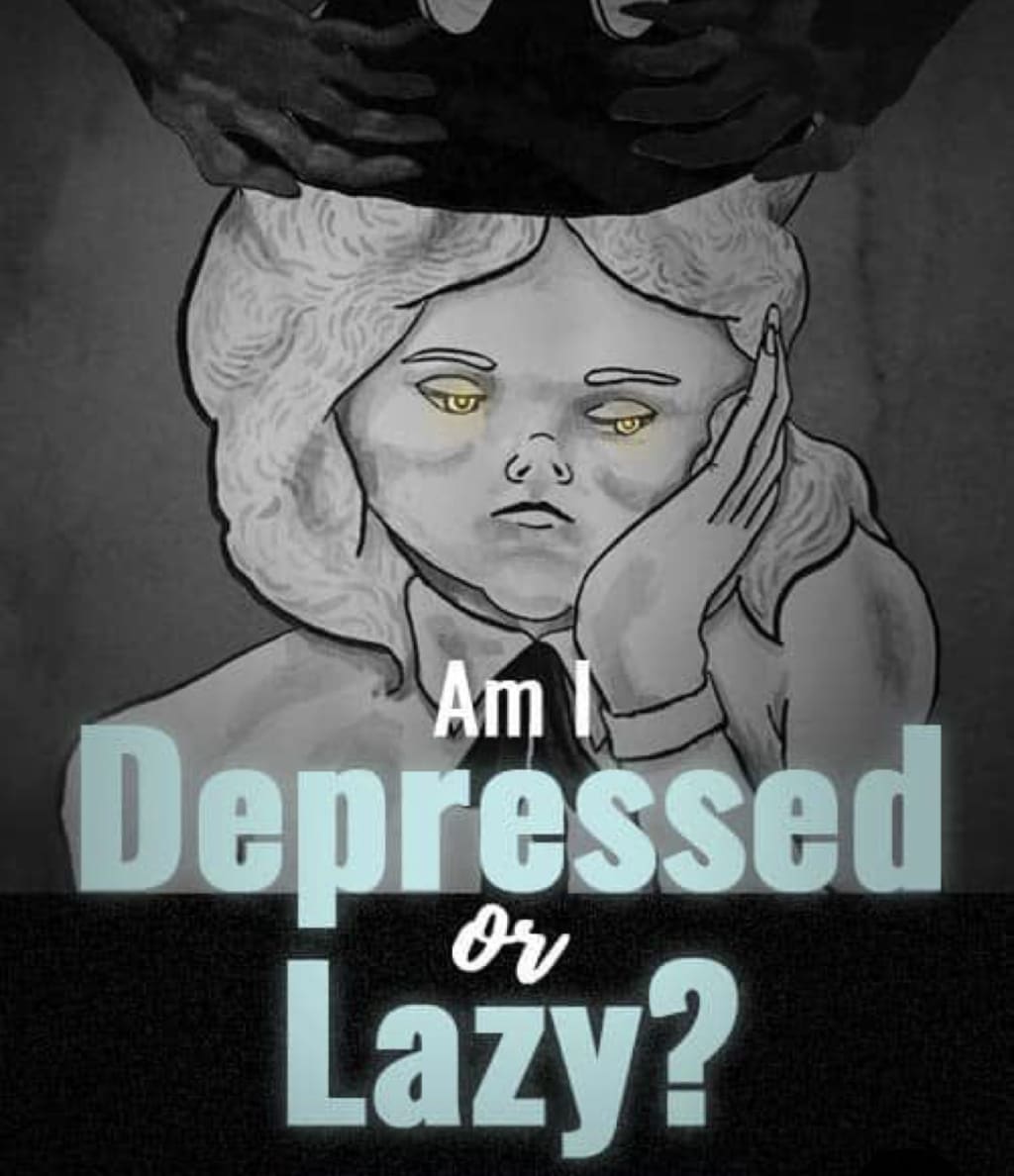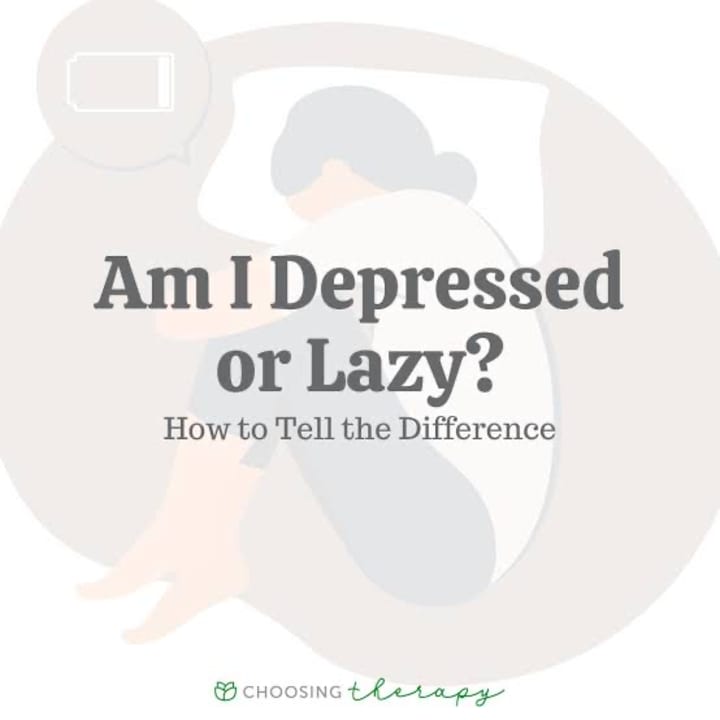8 Signs You’re Depressed and Not Lazy
Understanding the Difference

In today’s fast-paced and demanding world, it’s common to feel overwhelmed or fatigued. However, it’s essential to recognize that persistent feelings of laziness may be indicative of an underlying mental health condition, such as depression. Understanding the difference between depression and laziness is crucial for seeking appropriate support and care. In this article, we’ll explore eight signs that can help you differentiate between depression and laziness, promoting a deeper understanding of your emotional well-being.
1. Loss of Interest and Enjoyment:
Depression often diminishes one’s ability to find pleasure or interest in activities once enjoyed. If you find yourself consistently disinterested in hobbies or activities that once brought you joy, it may be a sign of depression rather than mere laziness.
2. Persistent Fatigue and Lack of Energy:
While feeling tired or low on energy can be a symptom of both laziness and depression, the key distinction lies in persistence. Depression often brings about unrelenting fatigue and a constant lack of energy, regardless of the amount of rest or sleep obtained.
3. Difficulty Concentrating:
Depression can impact cognitive functions, making it challenging to concentrate, remember details, or make decisions. If you frequently struggle with maintaining focus and find it hard to complete even simple tasks, it might be a sign of depression rather than laziness.
4. Emotional Changes:
Depression can cause significant shifts in emotions. It may lead to persistent feelings of sadness, hopelessness, emptiness, or irritability. If you find yourself experiencing a prolonged period of negative emotions that impact your daily life, it’s important to consider the possibility of depression rather than labeling yourself as lazy.
5. Changes in Appetite and Sleep Patterns:
Depression can disrupt both appetite and sleep. You may experience changes such as significant weight loss or gain, loss of appetite, insomnia, or excessive sleeping. These alterations in basic bodily functions are more indicative of depression than laziness.
6. Social Withdrawal:
Persistent withdrawal from social interactions and avoiding activities with friends or loved ones can be a sign of depression. It is not merely a result of laziness but rather a symptom of the emotional and mental challenges that depression presents.
7. Physical Aches and Pains:
Depression can manifest in physical symptoms such as headaches, back pain, muscle aches, or digestive issues. These physical manifestations, combined with other emotional and cognitive signs, can differentiate depression from laziness.
8. Negative Self-Perception and Self-Criticism:
Depression often involves negative self-perception and self-critical thoughts. If you frequently engage in self-blame or have an excessively low opinion of yourself, it is more likely a reflection of depression rather than laziness.
Conclusion:
It’s crucial to understand the distinction between depression and laziness to ensure appropriate support and care. Depression is a serious mental health condition that affects millions of people worldwide. If you resonate with several of the signs mentioned above, consider reaching out to a mental health professional who can provide a comprehensive evaluation and guidance. Remember, seeking help is a courageous step toward regaining control of your well-being and living a fulfilling life.Depression can make it very difficult to find motivation to do things that you normally enjoy. Some ways to take care of yourself if you're feeling down include exercising, getting enough sleep, eating well, and spending time with loved ones. It's also important to seek professional help if you're struggling with your mental health. It's very important to take care of yourself and seek help immediately if you're feeling down or confused.
If you find this piece interesting and worth reading , please consider leaving a heart ❤️, or even a tip. Your support means a lot to me as a writer!! Thanks and I really appreciate!

.
About the Creator
Jennifer Opara
Meet Jennifer, a passionate writer who loves to explore new ideas and share her thoughts with the world. Jennifer’s writing has inspired and informed readers across the globe and is always engaging, insightful, and thought-provoking.





Comments
There are no comments for this story
Be the first to respond and start the conversation.